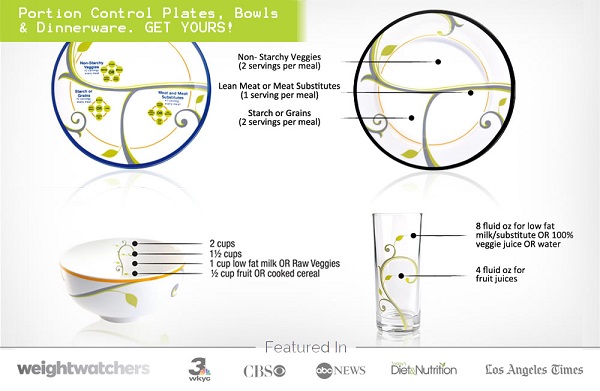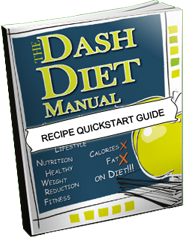Everything that happens in the body are influenced by the chemicals and the roles they play in it. Whether it is to sustain certain functions, to enforce growth, etc., all of these work because of the substances that facilitate them.
Over time, our bodies go through changes that alter its chemical balance and, thereby, causing disturbance to the body’s normal rate of function. The idea very much applies to almost every facet of the human body, including our blood pressure.
Supplements to Lower Blood Pressure
If you are clinically diagnosed as hypertensive, chance is good that you might be lacking some valuable nutrients that pave way for the continuity of your medical condition.
If the food you eat is insufficient enough to cater for your body’s nutritional needs to maintain its balance, chance is good you are turning to supplements in the hope of addressing the pressing issue.
Fortunately, there are indeed such products that you can incorporate as part of your daily maintenance against high blood pressure.
1. Folic Acid
Pregnant women tend to suffer from an increased in their blood pressure born from their delicate condition. Studies have shown that folic acid—or vitamin B9—is not only essential in the development of the child in the womb, it also aids in mitigating the likelihood of hypertension among gestating women.
But interest to the therapeutic administration of folic acid to not just women, but also men, had established the notion that the vitamin is indeed significant in the management of blood pressure, regardless of gender (McRae, M., 2009).
2. Vitamin D
Vitamin D is a special nutrient that is known for its essential role in the offsetting of disease as well as the general maintenance of good health.
A study by Forman, J. et al, (2008) has identified a link between vitamin D deficiency and the occurrence of high blood pressure.
While supplementation of vitamin D in light of an already existing case of hypertension does little (Witham, M. et al, 2009), individuals may instead choose to offset the medical condition by maintaining a healthy level of the nutrient in their body through supplementation.
3. Magnesium
There is no other nutrient in the human body that plays many major roles in it, including the management of blood pressure, than magnesium. With an identified capability that affects the body in both chemical and cellular level, magnesium is key to potentially addressing hypertension.
A translated study by Rosanoff, A., (2005) highlights the role that magnesium plays in both the occurrence (via its deficiency) and management (via its normal abundance) of high blood pressure.
4. Potassium
Both potassium and sodium play significant role in the regulation of blood pressure. Whereas sodium effectively promotes the increase of blood pressure through its systemic effect on the body, potassium acts as a counter agent which either negates or mitigates the potentially harmful effect of sodium in the body.
A research conducted by Binia, A. et al, (2015) corroborates to the established notion after identifying and emphasizing on the hypotensive nature of dose-dependent potassium supplementation.
5. Coenzyme Q10
Coenzyme Q10, otherwise known simply as CoQ10 or Ubiquinone, is a potent antioxidant that aids in the cells’ production of energy. But while not popularly known as beneficial in the fight against high blood pressure, some studies have established Coenzyme Q10’s potential as a treatment against hypertension for its hypotensive capability (Tabrizi, R. et al, 2018; Rosenfeldt, F. et al, 2007).
6. Fiber
Fiber has been popularized as a potent body cleanser, capable of aiding the body in removing excess wastes, not just coming from the digestive tract but also in the blood vessels. With an abundance on almost many natural sources of food, fiber is often recommended for healthy consumption for its known benefits.
However, fiber has also another known advantages to the human body, which is its ability to regulate blood pressure—a notion supported by the study conducted by Streppel, M. et al, (2005).
7. Acetyl-L-Carnitine
Acetyl-L-carnitine is a substance which shares the same functionality as Coenzyme Q10—it works primarily by aiding the body’s cells in the generation of needed energy, essentially as part of the overall scheme of metabolism.
Like CoQ10 as well, Acetyl-L-carnitine is also found out to be relevant in the amelioration of an elevated case of blood pressure due to its blood pressure-lowering capability (Ruggenenti, P. et al, 2009).
8. Melatonin
Melatonin is a hormone and neurotransmitter that has an endemic presence in the brain and is often attributed as the chemical responsible for giving us sleep. As quality rest plays pivotal role in the overall scheme of blood pressure, the benefit of melatonin giving us sleep makes for an obvious reason why people should have it in normal amounts daily.
In a study done by Grossman, E. et al, (2006), it has been found out that the benefit of melatonin is not only tied to sleep among individuals but its potency to induce lowered blood pressure, particularly among nocturnal hypertensive or patients who suffer from elevated blood pressure during night time.
9. Omega-3 Fatty Acid
Omega-3 fatty acid, which is a form of healthy fats that is abundant in fish and plant sources, is generally established as beneficial to the cardiovascular health for its ability to positively affect it.
With the interest in finding link to the role of omega-3 fatty acid in the battle against high blood pressure, a study by Cicero, A. et al, (2009) has managed to find out that administration of the substance to subjects produced a significantly impactful result.
10. Anthocyanins
Anthocyanins are the chemicals that give certain fruits their unique colors, ranging from red, purple, or blue. But more than just being the agent for giving fruits their appealing aesthetics, anthocyanins are edible and capable of a slew of health benefits, including prevention of inflammation, diseases, and the ability to lower bad cholesterol level in the body.
Based on the review conducted by Vendrame, S. & Klimis-Zacas, D., (2019), it highlighted the relevance of anthocyanins in the management of blood pressure as extracted from many previous studies.







 We're committed to bringing you the best in health and helping you discover the wonderful world of the DASH diet. If you're looking to control your blood pressure, hypertension, or just looking to get into great health, we're here to help.
We're committed to bringing you the best in health and helping you discover the wonderful world of the DASH diet. If you're looking to control your blood pressure, hypertension, or just looking to get into great health, we're here to help. 



